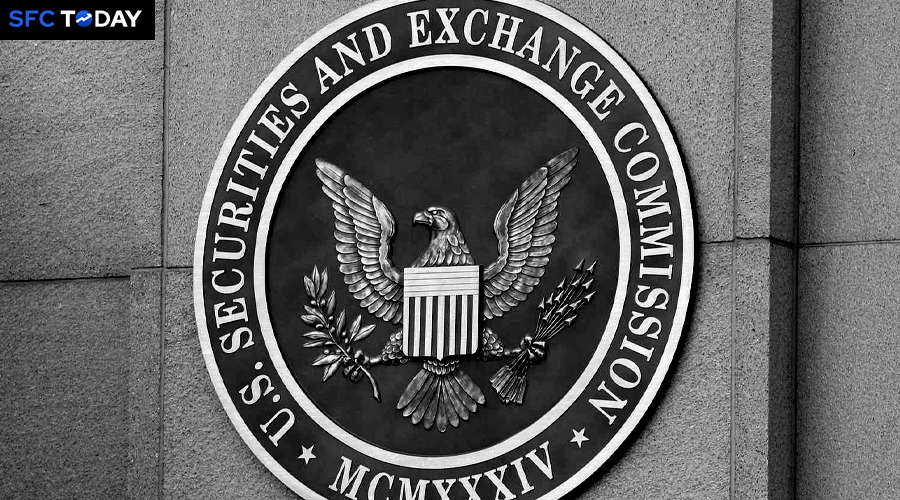Paxos recently announced that the SEC has terminated its investigation into the stablecoin
Paxos, the issuer of the Binance USD (BUSD) stablecoin, recently announced that the U.S. Securities and Exchange Commission (SEC) has terminated its investigation into the stablecoin. This article delves into the implications of this decision, the background of the investigation, and what it means for the future of stablecoins and the broader cryptocurrency market.
Background of the Investigation
The SEC’s investigation into BUSD began in February 2023 when Paxos received a Wells notice from the regulator. A Wells notice is a communication that the SEC sends to entities or individuals when it is planning to bring enforcement action against them. The notice indicated that the SEC believed BUSD was an investment contract and therefore should be registered as a security under federal securities laws.
The crux of the SEC’s argument was that BUSD earned profits through its reserves, which benefited both Binance and Paxos, thereby classifying it as an unregistered security. This investigation raised significant concerns within the crypto community, as it could set a precedent for how other stablecoins might be regulated.
Paxos’ Response and Market Impact
Paxos, a New York-based company, vehemently disagreed with the SEC’s stance. In a statement, the company asserted that its USD-backed stablecoins, including BUSD, are not securities under federal securities laws. Paxos emphasized that its stablecoins are always backed 1:1 with US dollar-denominated reserves, which are fully segregated and held in bankruptcy-remote accounts to ensure the safety of customer assets.
The market responded swiftly to the SEC’s notice. In February 2023, BUSD had a market cap exceeding $15 billion, but this figure began to decline following the SEC’s action. By the time the investigation was terminated, BUSD’s market cap had plummeted to just $69 million, highlighting the significant impact regulatory uncertainty can have on stablecoins.
Termination of the Investigation
On July 9, 2024, Paxos received a formal termination notice from the SEC, officially ending the probe into BUSD. Paxos reiterated its position that the Wells notice was unwarranted and unjustified, expressing relief and optimism about the future.
Walter Hessert, Paxos’ head of strategy, stated in an interview with Fortune, “The termination of this investigation formally is an enormous relief for us. It’s what we expected all along, and it really should create, hopefully, more certainty in the market among what we see as a growing number of large enterprises.”
SEC’s Legal Challenges
The SEC’s decision to drop the investigation into BUSD follows a series of legal setbacks for the regulator. In July of the previous year, a federal judge ruled in SEC vs Ripple that the XRP token was not a security concerning programmatic sales on exchanges. This ruling had significant implications for the SEC’s approach to regulating cryptocurrencies.
In June 2024, another judge cited the Ripple ruling in the SEC’s case against Binance and dismissed similar claims related to BUSD. These legal failures have prompted criticism of the SEC’s regulatory strategy and raised questions about the effectiveness of its enforcement actions in the rapidly evolving cryptocurrency space.
Implications for the Stablecoin Market
The termination of the investigation against BUSD is seen as a significant win for the stablecoin sector. It underscores the challenges the SEC faces in regulating cryptocurrencies and highlights the need for clearer regulatory frameworks.
Stablecoins like BUSD play a crucial role in the cryptocurrency ecosystem by providing a stable medium of exchange and a store of value, particularly in volatile markets. The regulatory uncertainty surrounding stablecoins has been a significant concern for market participants, and the SEC’s decision to end the BUSD investigation may help alleviate some of these concerns.
Future Outlook for Stablecoins and Cryptocurrencies
The outcome of the BUSD investigation has several potential implications for the future of stablecoins and the broader cryptocurrency market:
Regulatory Clarity: The termination of the investigation could prompt regulators to provide clearer guidelines on the classification and regulation of stablecoins. This clarity is essential for the continued growth and adoption of stablecoins in the financial system.
Market Confidence: The end of the investigation is likely to boost market confidence in stablecoins. As Hessert mentioned, it should create more certainty in the market, encouraging more enterprises to explore and adopt stablecoin solutions.
Innovation and Adoption: With reduced regulatory uncertainty, stablecoin issuers may feel more confident in innovating and expanding their offerings. This could lead to the development of new stablecoin products and services, further integrating stablecoins into the global financial system.
Precedent for Future Cases: The SEC’s decision to drop the BUSD investigation, coupled with recent legal rulings, could set a precedent for how future cases involving cryptocurrencies and stablecoins are handled. This could influence the regulatory approach not only in the U.S. but also globally.
The SEC’s decision to terminate its investigation into BUSD marks a pivotal moment for the stablecoin market and the broader cryptocurrency ecosystem. While regulatory challenges remain, this development provides a measure of relief and optimism for stablecoin issuers and users alike. As the cryptocurrency market continues to evolve, it is crucial for regulators, issuers, and market participants to work together to establish clear and effective regulatory frameworks that promote innovation while ensuring the safety and stability of the financial system.
The case of BUSD highlights the complexities of regulating digital assets and underscores the need for ongoing dialogue and cooperation between the cryptocurrency industry and regulatory bodies. As the market matures, the lessons learned from the BUSD investigation will be invaluable in shaping the future of cryptocurrency regulation and fostering a more secure and robust financial ecosystem.







